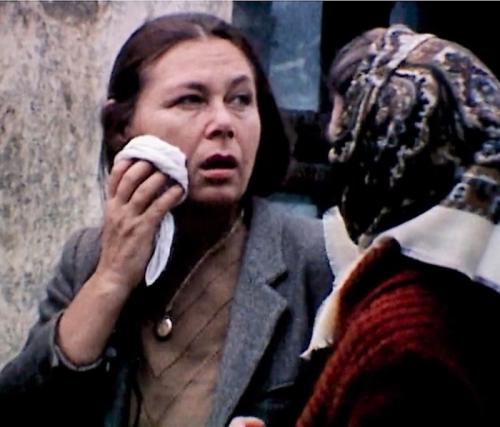EHRI Blog: One Film-Two Visits. Holocaust Survivor Edith Bruck Returns to Hometown Tiszakarád

The EHRI Document Blog has introduced the series If This Is a Woman, concentrating on gender and Holocaust research. The initial idea for the series traces back to a conference of the same name held in 2019 at Comenius University in Bratislava (co-organizers were the Leibniz Institute for Contemporary History and the Slovak Academy of Science), which showed the vitality of the field as well as the wide range of topics which can be researched from a gender perspective. The series will offer insights into current research projects focusing on gendered aspects and experiences of the Holocaust and the Second World War.
The first post, by Andrea Pető, focusses on the filmed visit of Holocaust survivor Edith Bruck to her hometown in Hungary in the 1980s. It shows the political problems with the film. Hungarian communist cultural norms in 1982 could not accept a film made about Hungarian rural antisemitism, collaboration, and plunder of Jewish property. Consequently, the Hungarian authorities used different strategies to prevent this from happening. Bruck who wanted to play the role of the ‘moral witness’ was vulnerable to these strategies and was easily manipulated. She was particularly vulnerable as she was alone in this process.
Edith Bruck is often called “Signora Auschwitz” in the press: her book with the same title was published in 1999.1 Only recently, with the English translation of her autobiography, she has received international recognition on a level commensurate with other writers of the Shoah like Elie Wiesel, Imre Kertész, and Primo Levy.
Read the Blog One Film - Two Visits
Image: Still from “The Visit”, Hungarian Filmarchive.